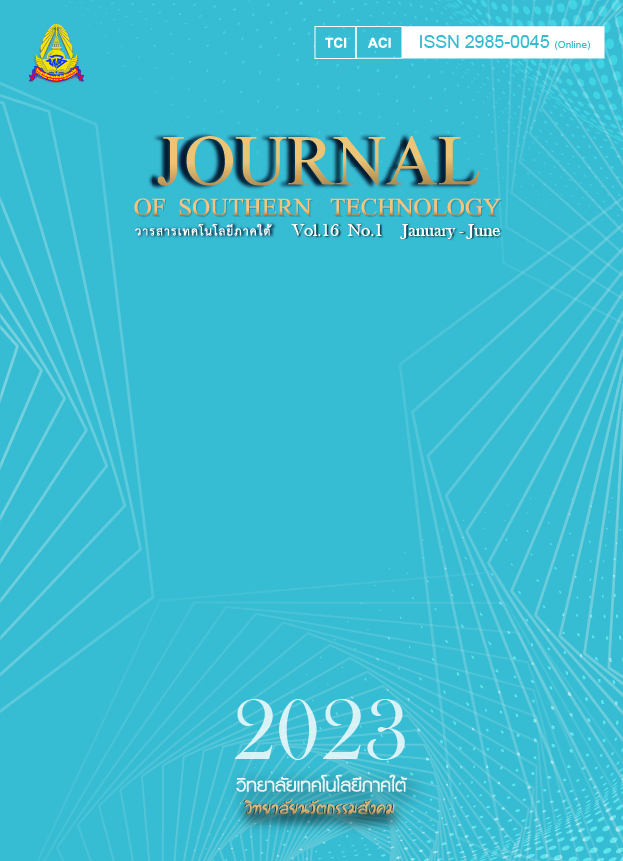Music Tourism Development of Thailand Case Study: Music Festivals at Khao Yai National Park
Main Article Content
Abstract
The Covid-19 pandemic has resulted in changes of tourist behaviors and their trust of Khao Yai National Park as a safe music tourism area. This research aims to study 1) behaviors of music tourists in new normal tourism, 2) contexts of Khao Yai National Park as a music tourism destination, and 3) provide guidelines for music tourism development of Thailand from the model of music tourism activities of Khao Yai National Park. Data were collected using a semi-structured interview form with 30 local stakeholders and an online questionnaire with 400 tourists. The research instruments were developed based on theories and concepts of lifestyle, travel career ladder, characteristics of music festivals, quality leisure destinations, and upgrading tourism safe zone in the era of new normal tourism. It was found that 1) tourists of Khao Yai National Park who attend the music festivals were diverse groups of all genders and ages. They were especially interested in attractive music festivals with interesting activities that match their travelling purpose. Also, such music destinations must be safe. They perceived the safety of their health and hygiene while travelling as the most importance (=4.73). 2) In general, Khao Yai National Park has the context of being a music tourism destination at the highest level (
= 4.52). It was rated in terms of its distinctiveness, safety and quality standards, ensuring hygiene and cleanliness, and fairness in the music tourism supply chain. 3) It was suggested that the music tourism development of Khao Yai National Park in Thailand should follow the “NEMO model”, which would attract tourists at the highest level (
= 4.86). This form of music tourism activities can be used as a guideline for creating music activities in other areas of Thailand.
Article Details

This work is licensed under a Creative Commons Attribution-NonCommercial-NoDerivatives 4.0 International License.
-
Authors must agree to the journal publication rules and allow the editors to edit the manuscripts for publication.
-
Author’s right belongs to the author but Journal of Southern Technology holds the right of first publication and thus allow readers to use the article for the purpose of education but not commercial.
References
Boonpen, W. (2019). Explore the World Music Industry and the Way of Raising Statues “Bangkok, the City of Music”. Retrieved October 18 2021, from https://hr.tcdc. or.th/en/Articles/Detail/FF_NOV_19. [in Thai]
Cindy, W. (2018). Jason Aldean Looks Forward to New Music- and New Memories-in Las Vegas. Retrieved November 7 2021, from https://www.wusa9.com/ article/news/ nation-now/jason-aldean-looks-forward-to-new-music.
Department of Tourism, Ministry of Tourism & Sports. (2021). Seminars to Upgrade Tourist Attractions to be Safe Tourism Areas (Safety Zone) to Prepare for the Opening of the Country for Tourists. Retrieved June 9 2021, from https:// web.facebook. com/hashtag/ safetyzone. [in Thai]
Gibson, C., & Connell, J. (2007). Music, tourism and the transformation of Memphis. Tourism Geographies, 9(2), 160-190.
IFPI. (2018). IFPI releases 2018 Music Consumer Insight Report. Retrieved October 9 2021, from https://www.ifpi.org/ifpi-releases-2018-music-consumer- insight-report.
Kaosa-Ard, M., Ratanawaraha, A., Thanapet, K., Pongpatcharatrontep, D., Unthong, A., Anathanasarn, N., … Valeethanapan, P. (2021). Strategies for Research and Development for Tourism after COVID-19 (Research Report). Bangkok: Program Management Unit Competitiveness (PMUC). [in Thai]
Leiper, N. (1995). Tourism Management. Australia: RMIT Press, Collingwood. Liengudom, K. (2018). Did you Know that Music Festival is Not Just a Concert?. Retrieved October 9 2021, from https://www. fungjaizine. com/quick_read/snacks/concert-vs-music- festival. [in Thai]
Pearce, P. L. (1988). The Ulysses Factor: Evaluating Visitors in Tourist Sellings. New York: Springer-Verlag.
Plummer, J.T. (1974). The concept and application of life style segmentation. Journal of Marketing, 38(1), 33-37.
Saenkam, B. (2021). The behavior of Thai tourists after COVID 19 situations. Journal of Liberal Arts and Service Industry, 4(1), 160 – 167. [in Thai]
Thansettakij. (11 September, 2017). Money Spread "Khao Yai" People Spill Over 2 Big Concert Championships 9-10 Dec. Thansettakij Online. Retrieved January 7 2022, from https://www.thansettakij. com/business/204245. [in Thai]
Tourism Authority of Thailand. (2019). Action Plan of the Tourism Authority of Thailand Fiscal Year 2019. Retrieved September 21 2021, from https://www.tat.or.th/ th/about-tat/market-plan. [in Thai]
UNESCO. (2018). The Creative Cities Network. Retrieved July 31 2018, from http://www.unesco.org/ new/fileadmin/MULTIMEDIA/HQ/CLT/pdf/Creative_cities_brochure_en.pdf
Uysal, M., Li, X., & Sirakaya-Turk E. (2008). Chapter 15 Push-Pull Dynamics in Travel Decisions. In H. Oh (Eds.), Handbook of Hospitality Marketing Management (pp. 412 - 439). London, UK: Routledge.
Wanichnum. (13 March, 2021). "Khao Yai" Business to Restore the Confidence of Tourists. Thairath online, Retrieved October 21 2021, from https://www.thairath.co.th/business/market/2048765.

